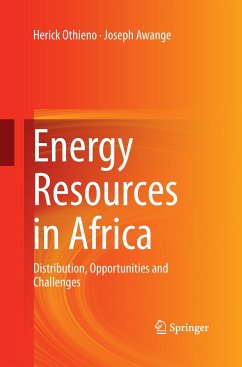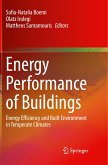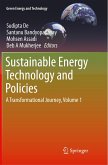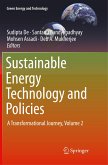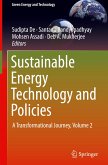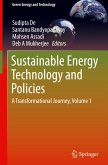This book providesinformation on the distribution of the available energy resources throughoutthe continent and how it is linked to the development of individual states.Africa is considered one of the poorest continents in the world, mainly becauseits development has historically depended on imported resources includingtechnical expertise. This view and its associated resource management strategyare based on the perception that Africa lacks sufficient energy resources todrive its development agenda. Analyses of individual countries' energy potentials,exploitation levels and distribution mechanisms are provided with a view toidentifying additional factors that are stifling Africa's economic development.One critical factor is the relationship between available energy resources andthe energy mixes chosen by different states, and how these can be exploited toproduce the right blend of energy for various applications such as industrial,transport, domestic, and recreational uses. The authors provide an in-depthanalysis of the advantages and disadvantages of different energy sources interms of their environmental, industrialization and distribution costs,impacts, and the development options best suited for improving Africa'seconomic situation. This analysis is based on the assertion that Africa is indeedblessed with abundant energy resources, which have not been effectivelyexploited. The book not only reviews Africa's energy situation in general, but also reveals that, while there are certainly circumstances peculiar to individual countries, the similarities, especially within Sub-Saharan African countries, outweigh the differences. That being said, the challenges and available opportunities in each country should be viewed with due consideration given to the prevailing national resource management environment. Many initiatives in Africa fail because of the many loopholes in the management structures, which allow corruption, theft, and mere selfishness to thrive. In addition to the negative impacts of these factors on implementation activities, there is also a general lack of institutional support for initiatives that could otherwise be very progressive. Thus, taken together, these retrogressive practices stifle African energy development plans. The book offers a valuable guide for developers, investors, researchers and environmentalist, providing in-depth insights on the relationship between available energy resources and development trends in Africa.
"By harnessing the wind and sun, your vast geothermal energy and rivers for hydropower, you can turn this climate threat into an economic opportunity." US President Obama's address to the African Union (2015)
"By harnessing the wind and sun, your vast geothermal energy and rivers for hydropower, you can turn this climate threat into an economic opportunity." US President Obama's address to the African Union (2015)

